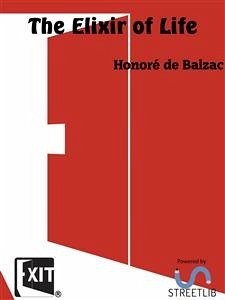TO THE READER
At the very outset of the writer's literary career, a friend, long since dead, gave him the subject of this Study. Later on he found the same story in a collection published about the beginning of the present century. To the best of his belief, it is some stray fancy of the brain of Hoffmann of Berlin; probably it appeared in some German almanac, and was omitted in the published editions of his collected works. The Comedie Humaine is sufficiently rich in original creations for the author to own to this innocent piece of plagiarism; when, like the worthy La Fontaine, he has told unwittingly, and after his own fashion, a tale already related by another. This is not one of the hoaxes in vogue in the year 1830, when every author wrote his "tale of horror" for the amusement of young ladies. When you have read the account of Don Juan's decorous parricide, try to picture to yourself the part which would be played under very similar circumstances by honest folk who, in this nineteenth century, will take a man's money and undertake to pay him a life annuity on the faith of a chill, or let a house to an ancient lady for the term of her natural life! Would they be for resuscitating their clients? I should dearly like a connoisseur in consciences to consider how far there is a resemblance between a Don Juan and fathers who marry their children to great expectations. Does humanity, which, according to certain philosophers, is making progress, look on the art of waiting for dead men's shoes as a step in the right direction? To this art we owe several honorable professions, which open up ways of living on death. There are people who rely entirely on an expected demise; who brood over it, crouching each morning upon a corpse, that serves again for their pillow at night.
At the very outset of the writer's literary career, a friend, long since dead, gave him the subject of this Study. Later on he found the same story in a collection published about the beginning of the present century. To the best of his belief, it is some stray fancy of the brain of Hoffmann of Berlin; probably it appeared in some German almanac, and was omitted in the published editions of his collected works. The Comedie Humaine is sufficiently rich in original creations for the author to own to this innocent piece of plagiarism; when, like the worthy La Fontaine, he has told unwittingly, and after his own fashion, a tale already related by another. This is not one of the hoaxes in vogue in the year 1830, when every author wrote his "tale of horror" for the amusement of young ladies. When you have read the account of Don Juan's decorous parricide, try to picture to yourself the part which would be played under very similar circumstances by honest folk who, in this nineteenth century, will take a man's money and undertake to pay him a life annuity on the faith of a chill, or let a house to an ancient lady for the term of her natural life! Would they be for resuscitating their clients? I should dearly like a connoisseur in consciences to consider how far there is a resemblance between a Don Juan and fathers who marry their children to great expectations. Does humanity, which, according to certain philosophers, is making progress, look on the art of waiting for dead men's shoes as a step in the right direction? To this art we owe several honorable professions, which open up ways of living on death. There are people who rely entirely on an expected demise; who brood over it, crouching each morning upon a corpse, that serves again for their pillow at night.









